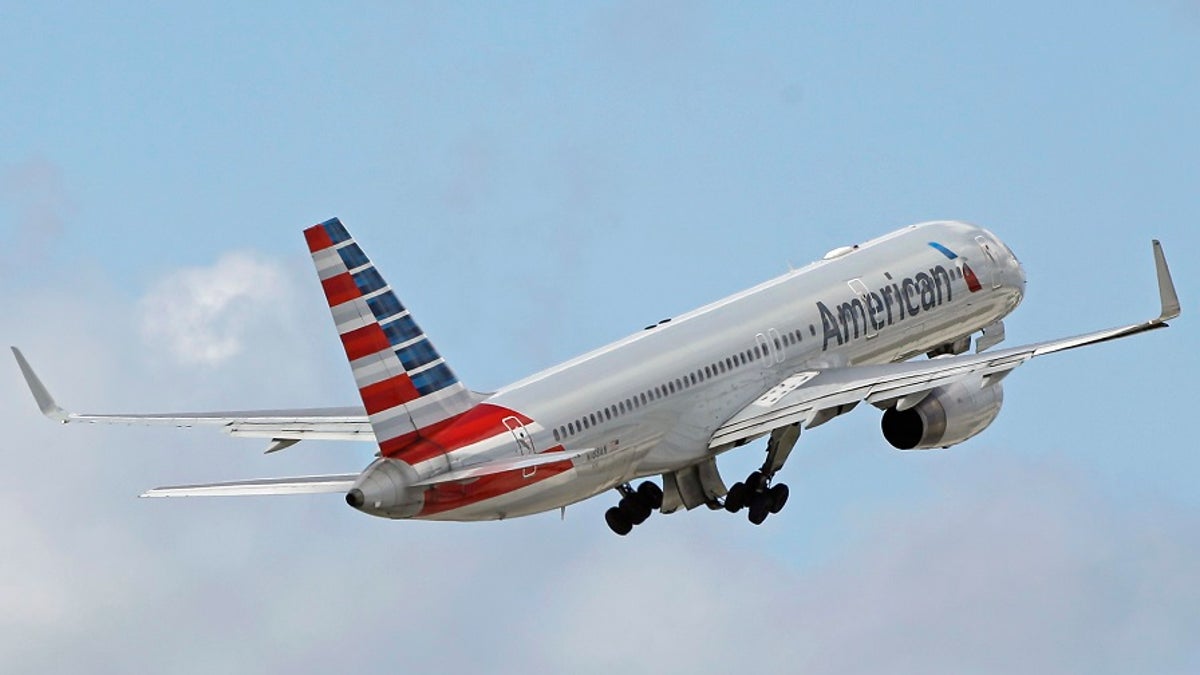
An American Airlines flight from Los Angeles to Washington, D.C. was reportedly delayed to a "urine smell" in the plane's cabin on Sunday, July 9, 2017. (AP)
When I served as President Reagan’s Secretary of Transportation, we recognized the economic importance of global air travel and the need for a free and fair market in the international aviation industry.
That’s why our administration – and subsequent administrations since – set to work on removing government restrictions and shaping an industry that works for both passengers and businesses.
Today, millions of jobs around the world rely on this thriving aviation sector. Travelers can fly to most countries in the world without restrictions – an everyday occurrence that wouldn’t have been possible when I was in government.
Beginning in 1992, the U.S. Department of Transportation and State Department began negotiating bilateral trade agreements with countries around the world, known as Open Skies agreements.
The purpose of these agreements was to liberalize a burgeoning aviation marketplace. Airlines could fly between countries free of limitations and constraints. According to the text of the Open Skies agreements, the bilateral treaties ensure “that competition is fair and the playing field is level by eliminating marketplace distortions, such as government subsidies…”
Simply put, as the aviation marketplace became more open, airlines would be expected to compete for travelers’ business on the merits of their products, without governments distorting the market.
By and large, the Open Skies agreements have been a fruitful endeavor. The United States currently has 121 Open Skies agreements with countries around the world. These agreements have provided great benefits to the U.S. airlines, their workers and, most importantly, the American traveling public. The agreements have been enforced and followed without controversy – except for two, with the United Arab Emirates and Qatar.
Since 2004, the UAE and Qatar have propped up their state-owned airlines – Emirates, Etihad Airways and Qatar Airways – with over $50 billion in government subsidies. This strikes at the heart of what Open Skies agreements are meant to protect against: market-distorting government interference. In order to truly understand the profound effect this subsidization has had on the industry, one needs to look just below the surface.
Recently, Qatar Airways released its Fiscal Year 2017 Annual Report, in which it reported significant growth and profits, purportedly as a result of an aggressive expansion strategy. A team of forensic accountants analyzed this report and found evidence of nearly $500 million in new subsidies from the government of Qatar to the airline. The latest cash infusion came as Qatar Airways suffered a $703 million operating loss. During the 2016 fiscal year, the airline lost $358 million, demonstrating a pattern of losses.
Governments and airlines around the world have witnessed the havoc the Gulf carrier subsidies can inflict on their aviation industries. Canada and the European Union have taken steps to ensure a level playing field for their domestic carriers, and the German Federal Minister of Transport and the French Secretary of State have each spoken out against the Gulf subsidies.
It’s long past time for the U.S. government to stand up for U.S. airlines and workers and stop the subsidies. The good news is that the Open Skies agreements that the U.S. entered into with the governments of Qatar and the UAE include provisions that give either party the right to request consultations for any reason.
Enforcing our Open Skies agreements with the UAE and Qatar would establish a level playing field for all airlines to compete fairly, without reliance on massive subsidies. It would help promote vigorous competition among airlines around the globe and give travelers a wide range of competitively priced options to choose from.
What’s more, proper enforcement would help sustain the long-term future of the international aviation marketplace and meet the original intentions of the Open Skies agreements.








































